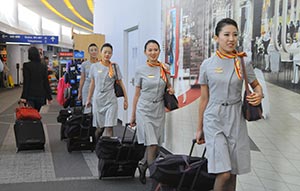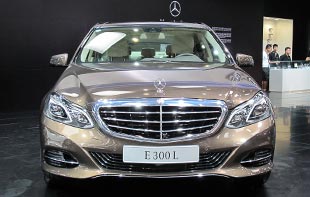

Zhu Haibin, the chief China economist at JPMorgan Chase & Co, said that excess capacity and weak investment activity in the manufacturing sector contributed to the nation's first-half economic slowdown.
"Decelerating economic growth can cut enterprises' income, which is expected to increase the risks associated with corporate debt, especially for highly leveraged companies," Zhu said.
A report from the China Iron and Steel Association said that price declines for iron ore and other raw materials used by the steel industry accelerated in May. These conditions indicate weak support for steel prices.
"As excess supply is difficult to reduce and increasing international trade friction may lower exports, steel prices are likely to be at a low level this year," the CISA report said.
The United States decided on June 13 to retain anti-dumping duties on imported concrete reinforced bars from China. The US also started anti-dumping investigations into imports of Chinese-produced PC steel wire on May 14.
Separately, Australia launched anti-dumping and anti-subsidy investigations into China's exports of galvanized products; and some Southeast Asian countries also imposed restrictions on imports of Chinese steel products.
CISA said Chinese iron and steel exporters will find conditions becoming more difficult. It suggested that these manufacturers should curb production capacity and adjust their product structure.
"We will focus on the domestic market in the near future, and promote profitability that depends on improved quality. Blind pursuit of size will put more pressure on profits," Kong said.
The group plans to double annual revenue by the end of 2015 without adding any production capacity.
"The restructuring will be based on product upgrades targeting the high-end market," Kong said.
Hebei Iron and Steel's new product range includes vehicle steel plates, steel for nuclear power plants and large items for marine equipment.
"The market requires high-strength, long-life new products that resist corrosion, pushing us to improve our technology and increase the ranks of skilled employees," Kong said.
To reduce raw material costs, the group is constantly looking for opportunities to invest in overseas mines.
"We prefer equity investment when we are talking about cross-border cooperation," said Kong. "The investment proportion may not be large, but we target raw material prices to be 5 to 10 percent lower than the market level."
Overseas products should yield at least 12 percent return on equity, he added.
Hebei Iron and Steel has invested in mines in countries including Brazil, Canada, Australia and the Republic of Congo.
 Models at Ford pavilion at Chengdu Motor Show
Models at Ford pavilion at Chengdu Motor Show
 Brilliant future expected for Chinese cinema: interview
Brilliant future expected for Chinese cinema: interview
 Chang'an launches Eado XT at Chengdu Motor Show
Chang'an launches Eado XT at Chengdu Motor Show
 Hainan Airlines makes maiden flight to Chicago
Hainan Airlines makes maiden flight to Chicago
 Highlights of 2013 Chengdu Motor Show
Highlights of 2013 Chengdu Motor Show
 New Mercedes E-Class China debut at Chengdu Motor Show
New Mercedes E-Class China debut at Chengdu Motor Show
 'Jurassic Park 3D' remains atop Chinese box office
'Jurassic Park 3D' remains atop Chinese box office
 Beauty reveals secrets of fashion consultant
Beauty reveals secrets of fashion consultant